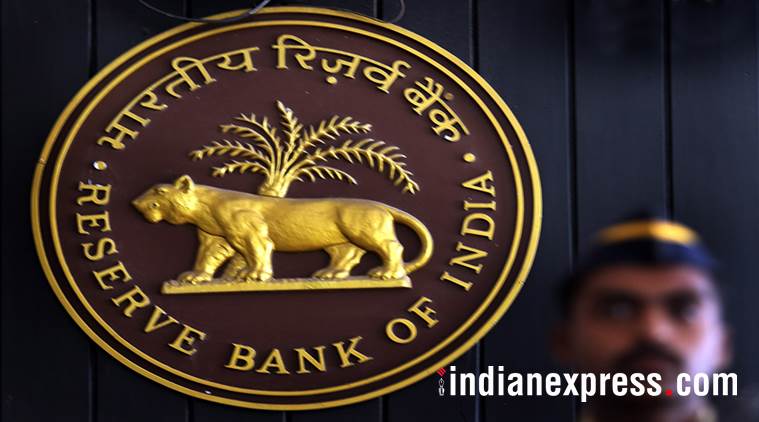The real bank crisis
RBI spotlight on private banks shines a light on the shortcomings of their boards.

The successive lines of defence against financial misreporting are the bank CEO, bank auditors, bank audit committee, bank board, and the RBI supervisors. (Express Photo by Pradip Das)
Recent decisions by the Reserve Bank of India on the various cases relating to the management at private sector banks brings into focus the role of the boards of private sector banks in India. If the banking regulator has to put its foot down against the considered opinion of the board, it may be an indication that things have gone too far. As one of the key responsibilities of the board is to oversee the senior management, the recent decisions by the RBI beg the question: Are the boards of the private sector banks indeed acting as the custodians of the various stakeholders or are they acting as the handmaidens of the management?
Consider the recent instance, where the board of ICICI issued a statement of unconditional support for its incumbent CEO, despite the preponderance of evidence seeming to paint her in an unflattering light. Similarly, at Axis Bank and Yes Bank, RBI’s asset quality reviews had thrown up significant concerns about the quality of the loan portfolios and their reporting. Yet, the boards of these banks recommended continuation of the CEOs, which did not find favour with the RBI. The boards of private sector banks need to deeply reflect whether they would like to be held in high esteem or not. I offer some suggestions below.
First, boards must realise that real independence from the management is as important as the perception of independence as seen by outsiders. For example, though better sense eventually prevailed in the ICICI case after what one reckons was a push from the independent directors — who were worried about the damage their reputation would have to suffer — the damage to the credibility and independence of the ICICI board was already done.
Second, boards of private sector banks need to realise that oversight over the quality of financial reporting remains an important responsibility of the board. Board oversight is needed on the quality of the loan asset portfolio, as under-reporting of NPAs and other stressed assets influences the integrity of financial reporting. Clearly, all banks need to be sensitive to this. However, senior management in private sector banks are incentivised based on bank profitability, and the compensation paid to senior management through stock options depends substantially on the bank’s stock price.
The successive lines of defence against financial misreporting are the bank CEO, bank auditors, bank audit committee, bank board, and the RBI supervisors. As everyone knows, the lack of board oversight can provide strong incentives to senior management to indulge in ever-greening of assets and RBI supervisors represent the final line of defence against financial misreporting on asset quality. Evergreening identified by the regulator clearly suggests that the private-sector bank boards have failed in their oversight on asset quality and the reporting of the same.
Third, board members must realise that there is a significant information asymmetry between them and the senior management. The management has the best information about the company. In contrast, despite their best efforts at reading between the lines, board members must realise that they meet once in a few weeks and get informed about the bank through the agenda papers for the board and board committee meetings. As good news can often take the elevator while bad news slowly creeps in via the stairs, board members in banks have to be extremely vigilant, especially about asset quality. In asking the right questions of the management, board members must keep in mind that the worst outcome that can manifest is that they may not get reappointed. Not getting reappointed to the board cannot be worse than the significant reputational damage that a board member can suffer from being associated with negative events in the firm. Moreover, the board member has been appointed as a custodian of the shareholders of the firm. These perspectives can indeed provide the board member the necessary conviction to raise key questions to them management.
Fourth, when compared to the boards of firms led by professionals, boards of entrepreneur-led banks need to be particularly focused on ensuring credibility and independence. In an entrepreneur-led bank, a general, albeit incorrect, perception can prevail that the board members need to toe the line to remain in the management’s good books. As a result, any instance of the board being perceived to have not acted independently can significantly damage its credibility. If the board commands little credibility then there is a serious issue of board independence and, therefore, of governance in the bank. In such cases, permitting the controlling shareholder to remain as the CEO risks misgovernance. However, in cases where the bank board is well-diversified and commands credibility, there need be no misgivings on the controlling shareholder remaining the CEO.
Given recent events, boards of private sector banks need to retrieve lost ground. Independent and credible boards are unlikely to face the wrath of the regulator.
The writer teaches finance at the Indian School of Business and was a member of the RBI committee on governance of bank boards
For all the latest Opinion News, download Indian Express App
More From Krishnamurthy Subramanian
- A budget for BharatBut there are concerns about its effect on the banking sector..
- A Start-up WarningStrategies anchored in incubators fail to foster entrepreneurship ..
- Money well spentUnion budget’s principal positive measure was the significant outlay for infrastructure...








































No hay comentarios:
Publicar un comentario